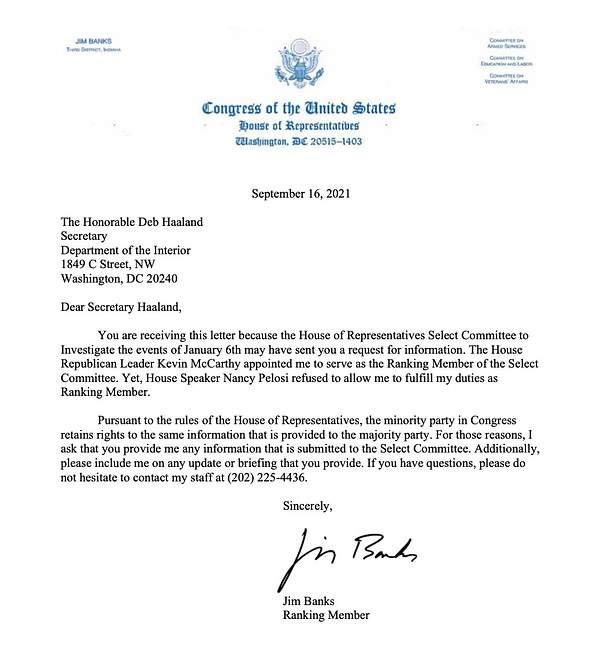
Last night, the “Trump Media and Technology Group” (TMTG) issued a press release announcing the creation of a “rival to the liberal media consortium” which would “fight back against the “Big Tech’ companies of Silicon Valley, which have used their unilateral power to silence opposing voices in America.” The new social media site was called “Truth Social,” and his team advertised it as the first piece of a media empire that would take its place beside the leaders in the field. Rather than a “tweet,” a statement on the new site would be a “truth,” and the terms of service prohibited criticism of the former president.
Within hours the site had been hacked. Then it crashed. It also appears to have been built on open-source software whose developer warned that the Trump social media network might have violated the software company’s licensing rules.
Watching Trump’s flailing attempts to create his own media corporation—this is his second attempt—highlights that since 1980, the project of the Republican faction that is now in control of the party has been to take things apart rather than to build them. They have focused on dismantling the government and stopping legislation. It has been a negative project, rather than a positive one, and breaking things takes little of the hard work and creativity that it takes to build things.
When those accustomed to breaking things try to build them, they seem to have little idea of how much work it actually takes. They seem to think that actual accomplishments are there for the taking, and that splashy announcements and dramatic actions can solve intricate problems.
So, for example, we recently saw the story that in the midst of the early days of the pandemic, Trump adviser Stephen Miller went around then–defense secretary Mark Esper to try to send 250,000 troops to seal the border between the U.S. and Mexico. Aside from anything else, this would have dramatically weakened the U.S. around the world.
But it was at least not as immediately damaging as the suggestion of then-president Trump, who wanted to launch military attacks on Mexican drug cartels within Mexico, an idea that he backed away from only when advisers noted that this would be seen as a U.S. attack on Mexico, which is our largest trading partner.
Building is slow, hard work.
Tonight, at a town hall hosted by CNN, host Anderson Cooper asked Joe Biden if he expected to get a deal on the large infrastructure package the Democrats have been working for months to negotiate. Biden said he did think so, and he also said that this infrastructure deal was not, actually, the most difficult deal he’d ever negotiated. The most difficult one was the deal to ban assault weapons, and, as he said, he succeeded at that.
There is reason to think that a deal on infrastructure is close. The fighting among senators—which is at least partly performative, but some of which shows underlying tensions—and news of real cuts both suggest that real negotiations are underway. Real negotiations show effort to create a real deal.
Building things is hard work.
Today, the House of Representatives voted 229–202 to refer Trump adviser Stephen K. Bannon, who defied a congressional subpoena, to the Department of Justice on charges of criminal contempt.
In comments before the vote, the chair of the House Select Committee to Investigate the January 6th Attack on the United States Capitol, Bennie Thompson (D-MS), told his colleagues that if they voted against enforcing the subpoena, “you are saying to all future men and women who are called before this body that they can ignore a subpoena from Congress without consequence. The consequences of that vote won't be limited to this investigation and this subpoena alone.” A negative vote would cause “serious long-lasting damage to Congress.”
Only nine Republicans voted yes. Two hundred and two Republicans wanted Bannon, who is closely associated with the January 6 insurrection, to be able to ignore a congressional subpoena without any consequences for that defiance. The only representative who did not vote was Greg Pence (R-IN), brother of former vice president Mike Pence, whom the rioters threatened to hang.
During the debate, the vice chair of the January 6 committee, Liz Cheney (R-WY), called out Indiana Representative Jim Banks for writing to federal agencies to ask for any information they sent to the committee, representing himself as its ranking member, that is, its top Republican. It was a childishly transparent attempt by allies of the former president to figure out what the committee knows.
I mean, literally, under his name on a letter to the Secretary of the Interior are the words “Ranking Member,” although the letter notes that House Speaker Nancy Pelosi, who retained the right to reject appointments to the committee, refused his assignment after he made it clear he intended to obstruct its work. And yet, despite Banks’s identification of himself as “ranking member,” when asked to comment on the revelation about the letters, a spokesperson for Banks said, “This is a bizarre Democrat narrative meant to distract from the actual contents of Rep. Banks’ letter and to avoid talking about the actual activities of the Select Committee, which are partisan, authoritarian and indefensible.”
Cheney is a hard-line Republican.
The U.S. Attorney’s office for Washington, D.C., accepted the Bannon referral at 5:30 this afternoon. Tonight Pelosi issued a statement saying: “The vote for the criminal contempt of Congress resolution today goes beyond Bannon. It was a vote for the system of checks and balances and the Constitution.”
Meanwhile, we learned today that at least three months ago the Justice Department added two top prosecutors to the investigation of Matt Gaetz (R-FL), one of former president Trump’s closest allies, for sex trafficking.
Building things takes slow, hard work.
—
Notes:
https://www.washingtonpost.com/technology/2021/10/21/trump-truth-social-fake-accounts/


https://abcnews.go.com/Politics/house-vote-steve-bannons-criminal-contempt-charge/story?id=80711497
https://www.cnn.com/2021/10/21/politics/jim-banks-liz-cheney-jan-6-committee/index.html


https://www.nytimes.com/2021/10/19/us/politics/trump-border.html
https://talkingpointsmemo.com/edblog/the-deal-starts-to-come-together
https://www.nytimes.com/2021/10/21/us/politics/matt-gaetz-justice-department.html











One of your (many) best. You bring to mind, of course, Speaker of the House Sam Rayburn's gem, "Any jackass can kick down a barn, but it takes a good carpenter to build one."
Sorry, making a second comment here with a second observation. It would be interesting to look at the parallels between the rise of Destructionist Republicans and the rise of private equity. The MO of private equity is also to break things, sell the pieces for scrap and pocket the profits. It is also the quick and dirty model that doesn’t have the patience or the loyalty to nurture and build. It’s the difference between house flippers and people buying their forever home. The materials they use for improvements are as different as their motivations and priorities.